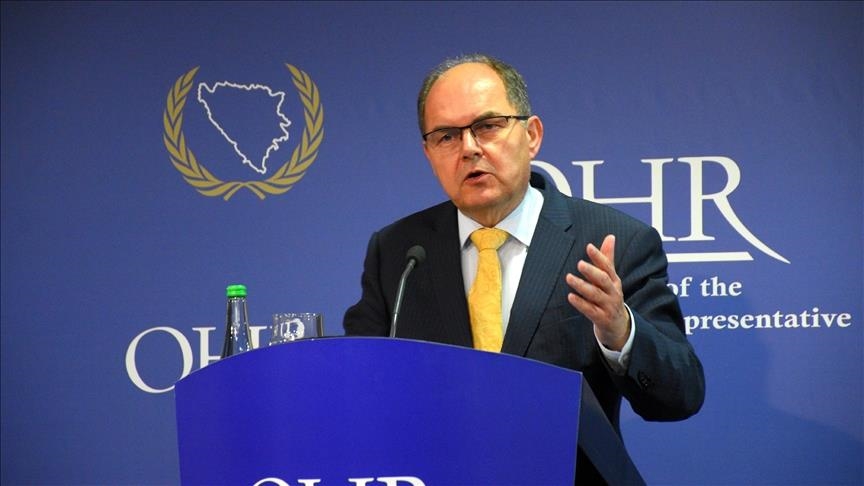BELGRADE, Serbia
Christian Schmidt, the high representative for Bosnia and Herzegovina, had an angry outburst during a news conference.
Answering a question by a journalist on Wednesday on alleged controversial changes to the electoral law before the parliamentary elections in early October, Schmidt said: “Rubbish! Full of rubbish.”
“People, I am not sitting, standing here. I care for this country. This is a town where people have lost their lives and we are not here just to play political games,” he said.
“In this country, politicians play political games. I am tired of this. Ask your questions but please take it how I am deciding and how I am dealing with the people. Sorry to be so outspoken but I am here with all these insultations which are absolutely wrong,” he said at a news conference in the eastern city of Gorazde.
Schmidt said the election law reforms have taken months and still not concluded.
“Friends, this is not the way to the European Union. You have to sit down and talk about this…
“These people deserve the politicians they elected by voting to work, apart from complaining. This is the main key problem. I want the Federation of Bosnia and Herzegovina, which has not been able to operate for four years, to become functional. I strive for this. But still, some people are unhappy with this situation,” said Schmidt.
Allegations that Schmidt would impose a new election law
There were reports in Bosnia and Herzegovina that Schmidt would impose a new election law.
Local media in July reported that by Aug. 1, German politician Schmidt would impose measures for the re-functioning of Bosnia’s federation.
The alleged new law would determine how delegates are chosen from the House of Peoples of the Bosniak-Croat Federation entity’s parliament.
If the law would be put in action the founding nations of Bosniaks, Croats and Serbs will lose representatives if their ethnic population in any federation canton is less than 3%.
Under the current election law, at least one Bosniak, one Croat and one Serb delegate are elected from each canton.
This would be the third time Schmidt uses the so-called “Bonn powers” after assuming office in August 2021.
The first time he did so was to annul a law on immovable property in Republika Srpska, a Serb-dominated entity.
The second time, Schmidt used his “Bonn powers” to finance the country’s general elections on Oct. 2, allocating €6.5 million (approximately $6.97 million) for the Central Election Commission.
The Office of the High Representative was established with the Dayton Peace Agreement that ended the 1992-1995 war in Bosnia Herzegovina. The office oversees the implementation of the peace agreement in the country on behalf of the international community. The high representative also coordinates the activities of international institutions operating in the country.
The high representative has the authority to dismiss anyone who interferes with the implementation of peace in the country, including members of the Presidential Council, and to pass laws as necessary.
These powers are dubbed “Bonn powers.”

